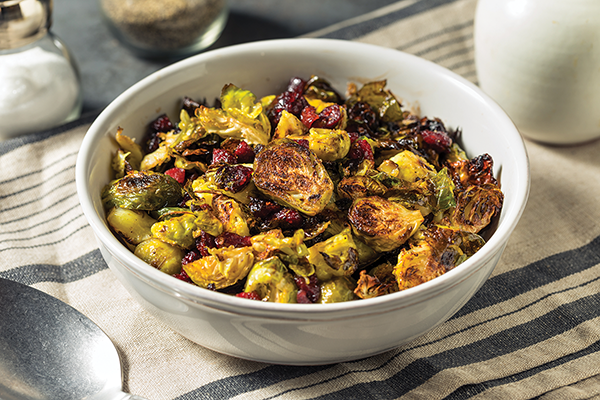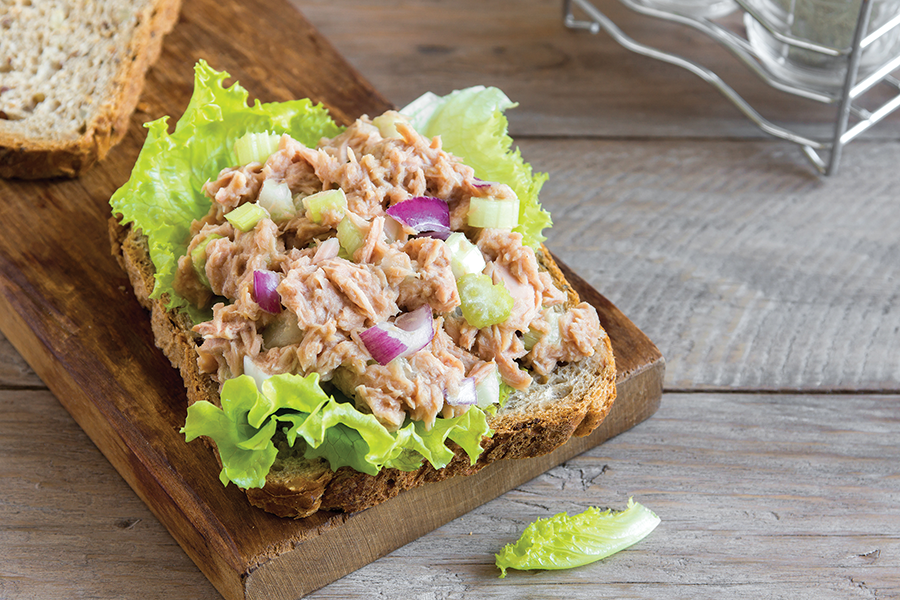 Mainly grown in Mexico, the Caribbean, and California (and more recently, Israel), the avocado is botanically regarded as a large berry that contains a single seed.1 Avocados are also known as “alligator pears” and are part of the Lauraceae family, comprising flowering plants and trees native to the Western hemisphere of Southern Mexico.1 Mexico is responsible for approximately 32 percent of the world’s avocado supply.1
Mainly grown in Mexico, the Caribbean, and California (and more recently, Israel), the avocado is botanically regarded as a large berry that contains a single seed.1 Avocados are also known as “alligator pears” and are part of the Lauraceae family, comprising flowering plants and trees native to the Western hemisphere of Southern Mexico.1 Mexico is responsible for approximately 32 percent of the world’s avocado supply.1
The size, shape, and color of an avocado depends on ripeness; the pear-shaped skin can present as green, brown, purple, and even black during the ripening process. However, avocados are typically picked while immature, ripening after harvest.1 Regarding the inner workings of this fruit, color and consistency of avocado flesh can also differ, but the flesh is mainly yellow-green, green, or brown; the consistency will become softer as it ripens. Generally, this portion of the avocado has a butter consistency and a rich, nutty taste. Avocados are a nutritional powerhouse.
FULL OF HEALTHY FATS
The omega-3s found in avocados reform the structure, flexibility, and activity of cell membrane-bound enzymes and cell-signaling pathway for red blood cells, immune cells, and cardiac tissue in the human body.2-4 Alpha-linolenic acid (ALA), eicosapentaenoic acid (EPA), and docosahexaenoic acid (DHA) are the main (and most regarded) omega-3s,2 comprising a significant group of polyunsaturated fats—the “good” kind of fat—and each element plays a role in the cardiovascular system, nervous system, immune system, optical system, and endocrine system of the body.2-4 These fatty acids reduce the risk of stroke, decrease the inflammation and oxidation that’s associated with cardiovascular diseases, has anti-inflammatory properties, and may even reduce symptoms of depression.5 Additionally, these fatty acids support the heart by reducing blood vessel constriction. This type of fat content is vital for neurological and visual development and function; mass amounts can be located in the cell membranes of the eye’s retina.2-8 These fats have also been shown to enhance memory, improve learning abilities, and basically strengthen the central nervous system.4,7,8 They also support the immune system by turning off inflammatory responses.3,4,8 In moderation, the monosaturated fat, another “good” kind of fat, in avocados specifically decreases LDL (“bad”) cholesterol levels and cardiovascular inflammation.8
AN EXCELLENT SOURCE OF FIBER
Increased fiber intake is correlated to a lowered reoccurrence of colon polyps and an overall reduced incidence of colon cancer. Fiber stimulates butyrogenic activity in the gut microbiome that have antineoplastic effects and protect the colon. In short, fiber “cleans out” the digestive track and maintains regularity.9 Avocado consumption is particularly beneficial for those who suffer from constipation, as irregular bowl movements allow prolonged contact between carcinogens in the stools and the gut wall.9 Along with blood sugar regulation and aiding in digestion, fiber also has anti-inflammatory properties.10,11 Lower levels of tumor necrosis factor-alpha (TNF-alpha), interleukin-6 (IL-6), pro-inflammatory immunity cells (cytokines) that signal immune/inflammation responses, have been reported in those who maintain a high intake of fiber.10
OPTIMAL FOR BRAIN HEALTH
Avocados are excellent “brain food,” full of vitamin K1, lutein, folate, and magnesium—all of which help maintain brain health in some fashion. Vitamin K1 ensures the brain has enough calcium; it also exhibits anti-inflammatory effects and enhances cognitive performance.12,13 In particular, vitamin K1 is a nutrient that is directly linked to improved memory in adults. Moreover, those with a sufficient intake are less likely to experience cognitive decline.13,14 Lutein can neutralize and prevent the occurrence of excessive free radicals and inflammation. Folate is vital for fetal brain development and continues to nourish our brains well into our elderly years; moreover, folate enhances cognitive function. Deficiencies are linked to a greater prevalence of cognitive disfunction, Alzheimer’s disease, depression (low folate levels are commonly found in patients with depression),15 and even epilepsy. The mineral magnesium can combat the memory lapses that come with aging.6 Increasing magnesium intake has been shown to enhance the brain’s ability to memorize information and learn. Apparently, only 32 percent of the population meets the daily recommended amount of magnesium.16-18
Lastly, avocados are loaded with vitamin E, which has antioxidant properties that protect the cells from free radical damage that can negatively impact the brain and promote the development of Alzheimer’s disease, Parkinson’s disease, dementia, and even depression.19
PROTECTS THE BODY
Indeed, avocados have antimicrobial antioxidant, antimicrobial, and analgesic properties that have been studied for decades. This means avocados offer protection against harmful pathogens, such as bacteria and fungi. Researchers have found that consumption of avocados was linked to decreased susceptibility to Streptococcus agalactiae and Staphylococcus aureus infections.19
The vitamin E component of avocados combat free radical/oxidative stress damage and protect the fat in cells throughout the body from chronic conditions.20 Additionally, vitamin E keeps the immune system going. It’s a strong lipid-soluble antioxidant found in immune cells that regulate immune function and reduce risk of infection, disease, and inflammation. The function, membrane integrity, and division of T cell, lymphocytes (white blood cells) are all impacted by vitamin E.20 Riboflavin (vitamin B2), also found in avocados, is also responsible for cellular function, growth, and development.21
BOOSTS ENERGY
Avocados are loaded with riboflavin, which impacts energy production of the body.22 In general, all B vitamins help our bodies convert what we eat into fuel (glucose), which creates energy. Moreover, riboflavin assists in the metabolization of fats and protein.22 Without riboflavin, the body cannot convert folate into a form it can utilize as well.
EASY TO PREPARE
There are countless ways to enjoy avocados.23 You can simply cut one open (after washing the skin), remove the seed, season the flesh, and dig in with a spoon. Another option is to pile on the toppings and bake the avocado, like you would a potato. Guacamole, hummus, pasta sauces, and other spreads can be made from avocados as well. Since they are creamy, avocados can be added to smoothies and soups, too. Additionally, avocados are a nutritionally optimal substitute for mayo and sour cream. Chopped avocado is perfect for salads and pasta and side dishes. As previously stated, the ripeness stages of avocados impact taste and consistency. Some recipes call for a semi-ripened avocado, while others recommended waiting until the avocado is fully ripe.
How to determine if your avocado is ripe enough to eat. Once picked, an avocado takes approximately 4 to 5 days to ripen.1,24 At this point, the avocado should feel slightly soft when applying gentle pressure. At this stage, it will be easiest to mash or cut.
Signs your avocado has gone bad. If the avocado is too soft, has dented and/or blackened skin, dark, stringy flesh, an “off” or bad odor, or is exhibiting signs of mold, it is time to toss it.25 However, in the early stages of over-ripening, you can eat around the discolored, stringy flesh to avoid waste.
SOURCES
- The Editors of Encyclopedia Britannica. Avocado. Updated 16 Jun 2021. https://www.britannica.com/plant/avocado.
Accessed 28 Sept 2021. - Cholewski M, Tomczykowa M, Tomczyk M. A comprehensive review of chemistry, sources, and bioavailability of omega-3 fatty acids. Nutrients. 2018;10(11):1662.
- Harvard T.H. Chan School of Public Health site. Omega-3 fatty acids: an essential contribution.https://www.hsph.harvard.edu/nutritionsource/what-should-you-eat/fats-and-cholesterol/types-of-fat/omega-3-fats/. Accessed 28 Sept 2021.
- Bradberry JC, Hilleman DE. Overview of omega-3 fatty acid therapies. P T. 2013;38(11):681–691.
- DHA-EPA Omega-3 Institute site. Conversion efficiency of ALA to DHA in humans. http://www.dhaomega3.org/Overview/Conversion-Efficiency-of-ALA-to-DHA-in-Humans.
Accessed 28 Sept 2021. - Blondeau N, Lipsky RH, Bourourou M, et al. Alpha-linolenic acid: an omega-3 fatty acid with neuroprotective properties-ready for use in the stroke clinic?. Biomed Res Int. 2015;2015:519830.
- The National Institutes of Health: Office of Dietary Supplements site. Omega-3 fatty acids. https://ods.od.nih.gov/factsheets/Omega3FattyAcids-Consumer/. Accessed 28 Sept 2021.
- Oregon State University site. Essential Fatty Acids. Updated Jun 2019. https://lpi.oregonstate.edu/mic/other-nutrients/essential-fatty-acids.
Accessed 28 Sept 2021. - Kojima M, Wakai K, Tokudome S, et al. Bowel movement frequency and risk of colorectal cancer in a large cohort study of Japanese men and women. Br J Cancer. 2004;90(7):1397–1401.
- Pahwa R, Singh A, Jialal I. Chronic inflammation. In: StatPearls [Internet]. Treasure Island, FL: StatPearls Publishing; 2020.
- Mayo Clinic staff. Nutrition and healthy eating. Updated 5 Jun 2021. https://www.mayoclinic.org/healthy-lifestyle/nutrition-and-healthy-eating/in-depth/high-fiber-foods/art-20050948.
Accessed 28 Sept 2021. - Chouet J, Ferland G, Féart C, et al. Dietary vitamin K intake is associated with cognition and behaviour among geriatric patients: the CLIP study. Nutrients. 2015;7(8):6739–6750.
- Alisi L, Cao R, De Angelis C, et al. The relationships between vitamin K and cognition: a review of current evidence. Front Neurol. 2019;10:239.
- Harvard Health Publishing site. Foods linked to better brainpower. 6 Mar 2021 https://www.health.harvard.edu/mind-and-mood/foods-linked-to-better-brainpower. Accessed 28 Sept 2021.
- Reynolds EH. Folic acid, ageing, depression, and dementia. BMJ. 2002;324(7352):1512–1515.
- The National Institutes of Health: Office of Dietary Supplements site. Magnesium. https://ods.od.nih.gov/factsheets/Magnesium-HealthProfessional/ #:~:text=Magnesium%20is% 20widely%20distributed %20in,cereals%20and%20other %20fortified%20foods.
Accessed 28 Sept 2021. - Broder J. Magnesium may improve memory. 27 Jan 2010. https://www.webmd.com/brain/news/20100127/magnesium-may-improve-memory.
Accessed 28 Sept 2021. - Hoane MR. The role of magnesium therapy in learning and memory. In: Vink R, Nechifor M, editors. Adelaide (AU): University of Adelaide Press; 2011.
- PF C, Scarpassa J, Pretto-Giordano L, et al. Antibacterial activity of avocado extracts (Persea americana Mill.) against Streptococcus agalactiae. Phyton-International Journal of Experimental Botany. 2016;85:218–224.
- Lee GY, Han SN. The role of vitamin E immunity.
Nutrients. 2018 Nov 1;10(11):1614. - Mount Sinai site. Vitamin B2 (riboflavin). https://www.mountsinai.org/health-library/supplement/vitamin-b2-riboflavin.
Accessed 28 Sept 2021. - The National Institutes of Health: Office of Dietary Supplements site. Riboflavin. Updated 26 Mar 2021. https://ods.od.nih.gov/factsheets/Riboflavin-HealthProfessional/.
Accessed 28 Sept 2021. - Semeco A. 23 delicious ways to eat an avocado. 21 Jun 2019. https://www.healthline.com/nutrition/23-ways-to-eat-avocados. Accessed 28 Sept 2021.
- Colorful Plates site. A a guide to avocado ripeness. https://colorfulplates.co/tips-tricks/hass-to-have-it-a-guide-to-avocado-ripeness/.
Accessed 28 Sept 2021. - McCulloch M. 5 ways to tell your avocado has gone bad. 26 Mar 2019. https://www.healthline.com/nutrition/when-is-an-avocado-bad. Accessed 28 Sept 2021.





